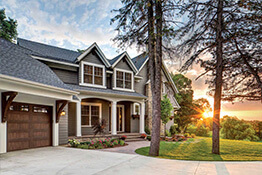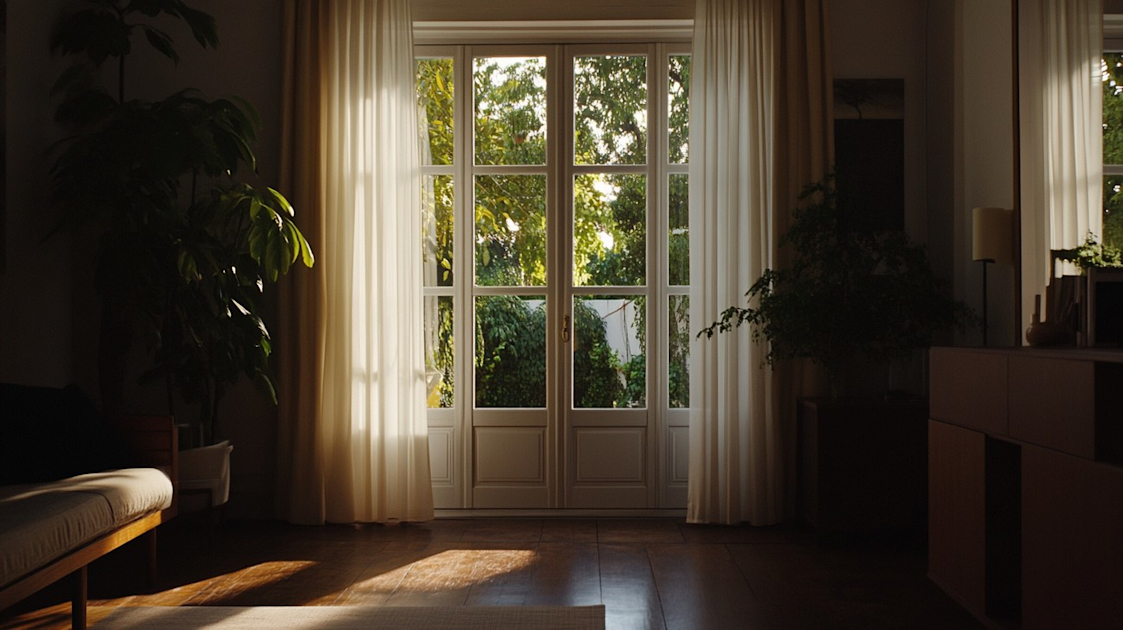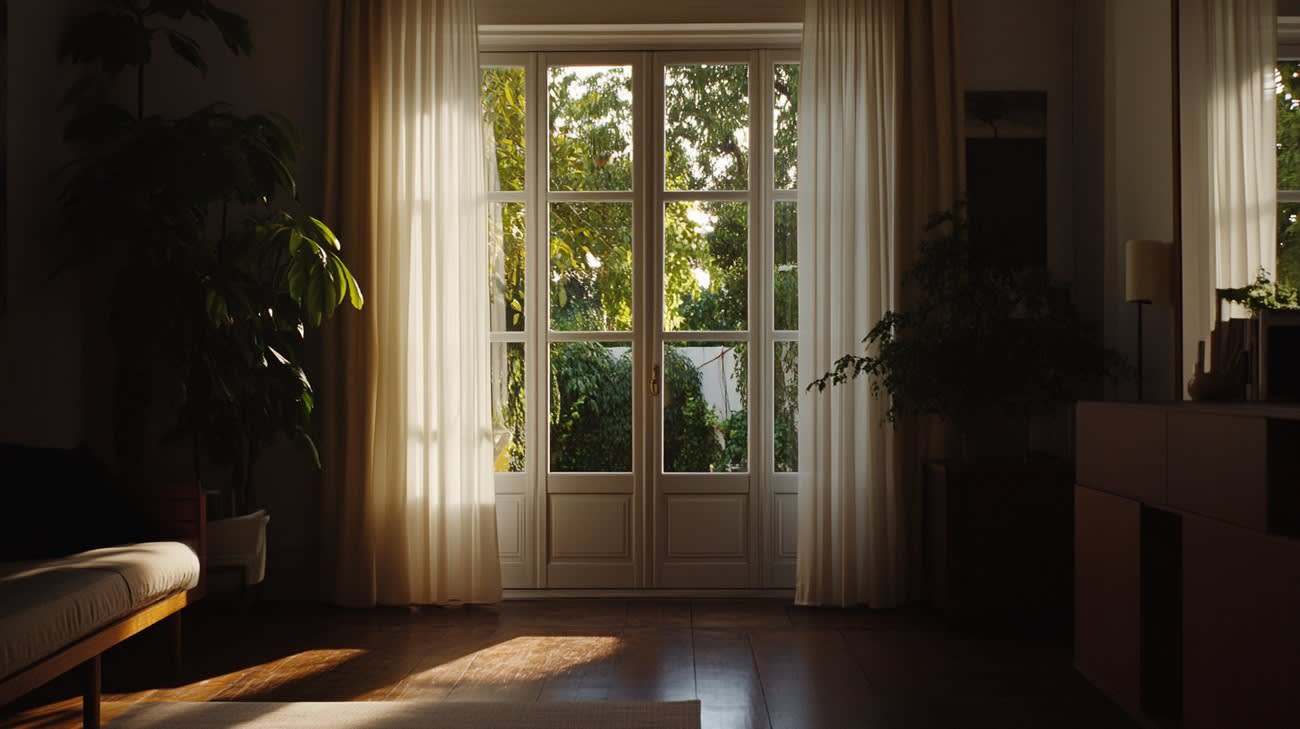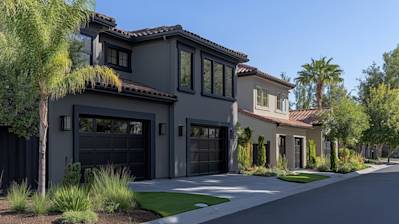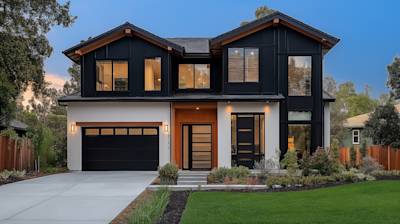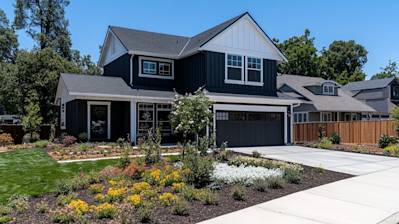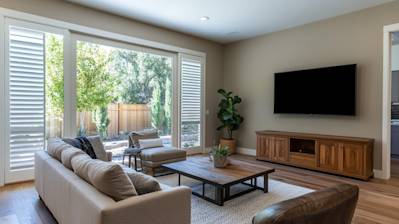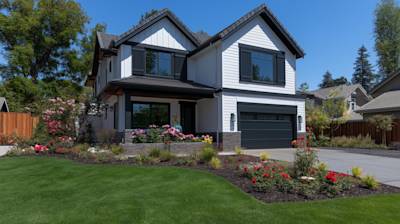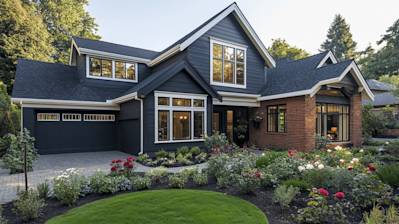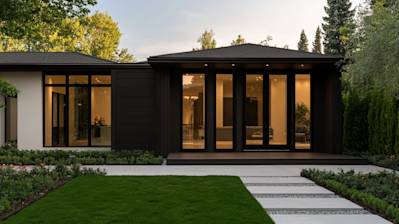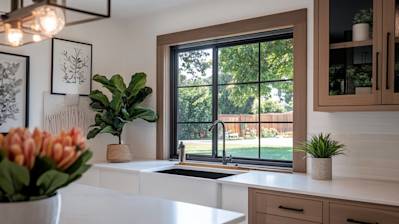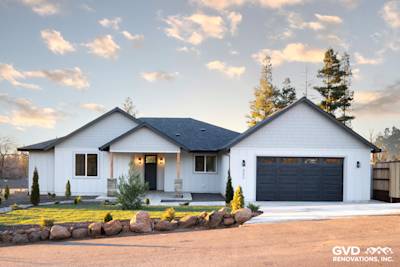French Casement Windows have been a staple in French architectural design for many centuries. They're known for their classic elegance and uncanny ability to let in vast amounts of natural light. If you're seeking a timeless window solution that expertly fuses beauty, utility, and robustness, look no further than French Casement windows.
What are French Casement Windows?
In essence, French Casement Windows are fairly simple in design. Two window panes sit side-by-side and swing outwards from the center. This dual sash window opens like a French Door, with no central mullion obstructing the view. It's a much-loved window solution globally, noted for its distinctive European charm and great functionality.
French Casement Windows: A Blend of History and Charm
The origin of the French Casement Window dates back to the 17th century during the peak period of French classicism. They were a hallmark of French Renaissance architectural styles, gracing lavish royal chateaus, manors, and urban townhouses.
However, their popularity quickly spread across the globe, rapidly ingraining themselves into numerous architectural designs and styles. From traditional to contemporary homes, French Casement windows seamlessly blend with numerous aesthetics, adding an undeniable touch of sophistication.
Detailed Anatomy of the French Casement Window
To truly appreciate the charm and functionality of French Casement Windows, it's essential to explore their detailed anatomy:
Window Frame
Every French Casement Window features a sturdy frame, often wooden, that holds the window together. It's a crucial part of the structure that ensures durability and long-lasting performance.
Window Sashes
The sashes refer to the moving parts of the window that open outward. They're directly attached to the frame, allowing a simple, smooth operation.
Window Panes
These are the glass sections of the French Casement Window - often separated by astragal bars giving a multi-window effect while maintaining a single frame.
Window Hardware
Often ornate and decorative, the hardware includes the crank, latch, and hinges required to operate the windows. These elements also contribute to the overall aesthetics of the window.
Weather-Stripping
Normally situated around the window edge, the weather-stripping ensures the window seals effectively when closed, maintaining your home's energy efficiency.
Unique Features of French Casement Windows
French Casement Windows are packed with exclusive features that make them stand out from other window options:
- Unobstructed Views: With no central bar, they offer panoramic views, making them an excellent choice for overlooking gardens or expansive landscapes.
- Natural Light: Their design allows maximum sunlight to flood your space, promoting an airy, vibrant atmosphere.
- Versatile Design: They’re perfect for vintage, contemporary, and hybrid architectural styles. Pick your favorite frame material, style, and color to customize your window.
- Efficient Ventilation: With the ability to open both sashes simultaneously, these windows provide exemplary ventilation.
- Ease of Cleaning: Their design allows easy access to both sides of the glass, making cleaning a breeze, especially for second-story windows.
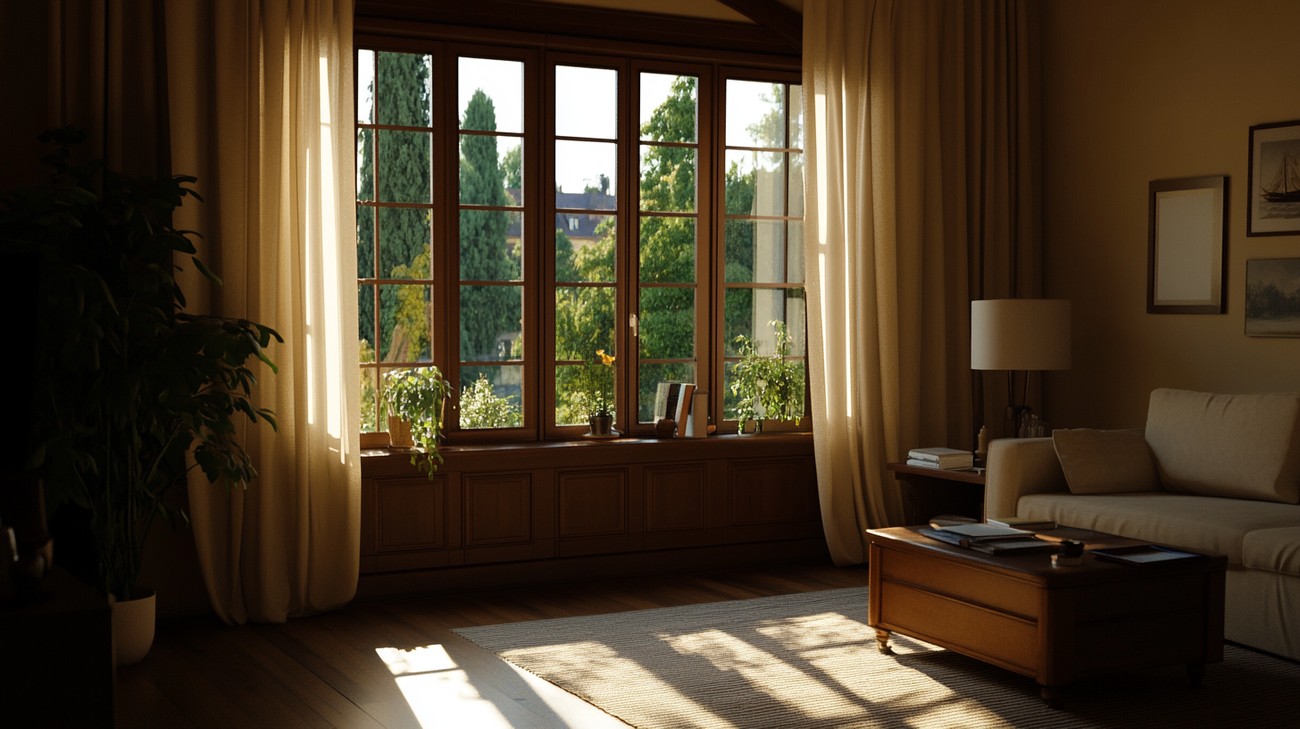
Frequently Asked Questions about French Casement Windows
What materials are French Casement Windows made from?
These windows are typically crafted from materials like wood, clad-wood, vinyl, and aluminum. Each material has its unique properties. For instance, wood adds a classic aesthetic charm while materials like vinyl and aluminum are more durable and require less maintenance. Which material you choose for your French casement window will largely be determined by your style preference and maintenance capability.
Are French Casement Windows energy efficient?
Yes, French casement windows are usually energy efficient because they seal tightly when closed. The multi-point locking system, combined with quality weather stripping, helps to minimize drafts and heat transfer. Many French casement windows are double-paned or triple-paned, and some may even have a low-E coating or argon gas fill for improved thermal performance.
Where are French Casement Windows typically installed?
French casement windows are commonly found in living rooms, dining rooms, bedrooms, or any area of the home where an unobstructed outside view is desired. They can also be installed in difficult-to-reach areas, such as above kitchen sinks or cabinets. In addition, because of their ability to fully open, they are often found in areas where maximum ventilation is required such as bathrooms.
Can you install screens with French Casement Windows?
Yes, screens can be installed with French casement windows. The screens are typically placed on the interior of the window, allowing the windows to swing outward unobstructed. When the window is open, the screen helps to keep insects and unwanted debris from entering your home.
How secure are French Casement Windows?
The design of French casement windows includes a multi-point locking system, making them more difficult for intruders to force open and increasing the overall home security. Some models may also feature lockable handles for added safety. However, like with any window, the security is also dependent on the quality of the installation and the strength of the materials used.
Can French Casement Windows be made with decorative glass?
Absolutely! French casement windows can be made with a variety of decorative glass options, adding a personal touch to your home. Whether you prefer stained glass, beveled glass, etched glass, or any other designs, there are plenty of options out there to suit your preferences.
Is it difficult to clean French Casement Windows?
One of the benefits of French casement windows is that they are relatively easy to clean. Because both sides of the window open, you can usually reach both the inside and outside surfaces from within your home. This makes them an excellent choice for upper level windows or hard-to-reach places.
What treatments work well with French Casement Windows?
Many people appreciate the clean, uncluttered look of French casement windows and choose not to use any window treatments at all. If you prefer to use window treatments, options like blinds, curtains, and shades work well. Depending on your privacy and light control needs, you might also consider sheer curtains or semi-opaque treatments.
Pros of French Casement Windows
French casement windows offer an array of advantages that make them a popular choice amongst homeowners. Their unique design, functionality and aesthetic appeal account for their popularity in architectural planning and interior design. Below, we delve deeper into the specific benefits these windows confer.
Unobstructed Views
No Central Mullion
One of the most appealing features of French casement windows is the absence of a central mullion (the bar that typically separates the window panels). With these windows, you get an unobstructed, widescreen view of your garden, street or surroundings. This can make a space feel more open and connected with the environment outside.
Easy Operation
Smooth Opening Mechanism
French casement windows are valued for their ease of use. Hinged on the side, they operate using a smooth crank mechanism rather than a slide or lift. Even bigger, heavier windows are reasonably manageable to open and close with little effort.
Enhanced Ventilation
Double Window Mechanism
Because they open like doors from the center, French casement windows allow for a greater amount of fresh air to stream into a room. Even when open just slightly, the unique design encourages good air circulation. For people who value natural ventilation, this is a significant advantage.
Added Safety Features
Multi-point Locking System
French casement windows often come with a multi-point locking system, offering enhanced security against potential intruders. Additionally, the fact that they open fully can be beneficial in case of emergencies, providing a viable means of escape if required.
Improved Aesthetics
European Elegance
Originating in France, these windows exude a certain European elegance that can uplift the décor of any home. They already come in many styles and can also be custom-made to fit specific architectural preferences.
Cons of French Casement Windows
Despite their numerous advantages, French casement windows also have certain drawbacks. Factors such as cost, maintenance and potential design downsides may deter some homeowners. Let's examine these issues in more detail.
Higher Cost
Expensive Installation and Replacement
Generally, French casement windows are more expensive than traditional double-hung or sliding windows. This is primarily because of their intricate design and the high-quality materials typically used in their construction. Additionally, if these windows need replacement, they may incur higher costs.
More Maintenance
Regular Cleaning Needed
French casement windows can require more upkeep than other windows. The crank mechanism needs to be regularly maintained to keep it functioning smoothly. Additionally, cleaning these windows, especially on higher floors, can be more challenging because of how they open.
Restricted Window Treatment Options
Limited with Blinds and Curtains
Due to their specific design, finding suitable window treatments for French casement windows can be a bit of a challenge. Standard blinds or curtains may not fit appropriately, and you may need custom solutions.
Potential for Wind Damage
Susceptibility to Adverse Weather
Because they open outwards, French casement windows are exposed to the elements and may be susceptible to wind damage, especially in storm-prone areas. While this can be mitigated with proper installation and quality materials, it's still a consideration worth making.
Less Availability
Less Popular in Some Regions
If you live in a region where French casement windows are not popular, it might be harder to find contractors who are well-versed in their installation and maintenance. Additionally, finding replacement parts may also pose potential difficulties.
Summary
French casement windows are a great choice for anyone wanting to add a touch of elegance and charm to their home. These windows are not only visually appealing, but they also offer practical benefits. Designed to swing outwards like a door, they provide a full, unobstructed view of the outdoors and can easily be opened for fresh air.
They really are a versatile style. Since there's no vertical post in the center, French casement windows offer improved visibility and can better accommodate big window openings. As they swing open rather than sliding up or down, they provide a wider opening for natural ventilation, and can even serve as an accessible exit in case of emergencies.
Despite the quintessential charm of French casement windows, they might not be a perfect fit for all styles of homes. While they pair remarkably well with traditional European-style homes, their old-world charm may not align with more contemporary architectural styles. Before deciding, take some time to consider the overall aesthetic of your home, how security, cleaning, and maintenance needs will be met by this type of window, and how it aligns with your personal preferences. No matter what, French casement windows are a timeless choice, merging beauty and functionality seamlessly.
About GVD Renovations & Remodeling
GVD Renovations & Remodeling is a home renovation specialist based in Roseville, CA with over 15 years of experience. We pride ourselves in high quality work and customer satisfaction. Providing a range of services from kitchen and bathroom renovations to whole house remodeling, we're all about bringing your vision to life. Our team of professionals is committed to working with you to ensure all your home improvement plans turn out exactly how you've imagined. Whether it's updating your kitchen, adding a new room, or sprucing up your exterior, GVD Renovations & Remodeling has got you covered. Let's make your dream home a reality!
Tags: french, casement, windows,

